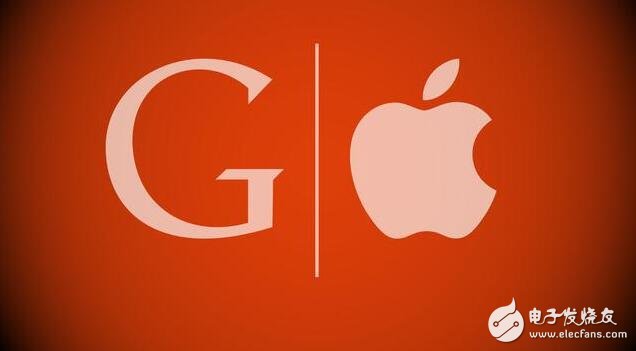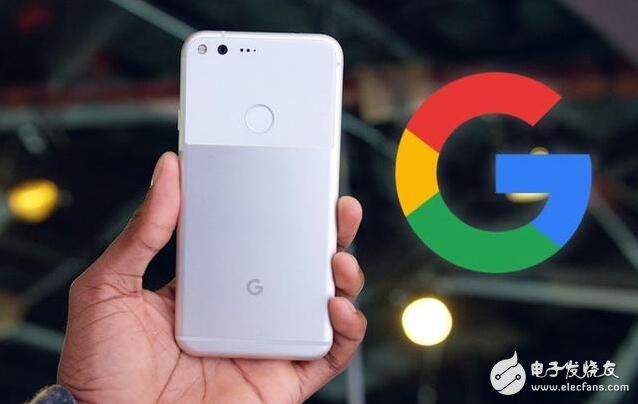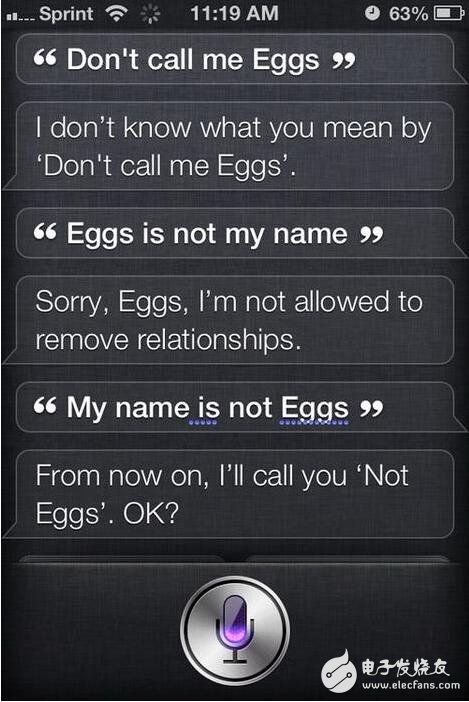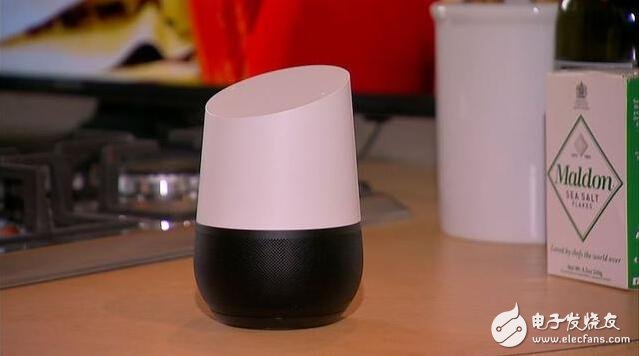In San Francisco on the morning of October 5th, Google held a hardware conference, and the new mobile phones, VR, and home smart devices were all unveiled. Since Android entered the 7.0 era, how to make hardware products intelligent through software has become the theme of Google's conference, and the combination of software and hardware has become the main theme of the conference. Recently, Google released a series of hardware products around artificial intelligence, which is equivalent to standing on the opposite side of Apple. For Google, this risk is extremely high and cannot be lost.
In this conference, Google’s new assistant, Google Assistant, was released before the hardware. Compared with the Google assistant in the 6.X era, the assistant on 7.X pays more attention to the information integration ability. It is no longer a single question and answer, but more intelligent information display by calling more permissions in the system. Google has made a choice, that is, it launched the AI ​​assistant Google Assistant. However, if the software is excellent, it needs to be able to support its hardware.
That's what Google is doing at the moment: it recently launched two phones, a smart speaker, a VR helmet, a WiFi router and a TV stick. It plans to build a complete, mutual product through these hardware products. Connected hardware ecosystem. For the first time, Google made itself stand on the opposite side of Apple because of its own hardware products. There is a very high risk involved and there is no loss.

The first round: Pixel vs. iPhone, not just destroying the camera
Google has produced a lot of hardware products, but it has nothing to do with its core business, search. Whether it's the disappointing Nexus Q or the unexpectedly successful Chromecast, Google's products have been developed by a number of different departments, but there is no unified strategy to guide the cooperation of these departments. This situation changed in April this year, and Google hired Motorola senior executive Rick Osterloh as the head of the hardware business.
Today, all of Google's hardware is handled by the department headed by Ostro, which guarantees the consistency of design and use of various hardware products. Take a look at Google's current products and you'll find that their designs are more cohesive than before. Ostro said: "Fundamentally, we believe that many of the innovations we are pursuing now need to control the end-to-end user experience." You may often hear Apple say this, but this is still from Google’s mouth. Less common.
This absolute control is a radical change for Google. For example, its previous Nexus project was just to provide other hardware vendors with a reference platform to understand the new changes in Android. Its role is to showcase new processors, larger displays and cheaper designs. Selling these phones is usually a side job, not a core business.
And when the Nexus phone became available, Google finally found itself facing a more pressing need: to compete directly with Apple, let Android become a direct competitor of the iPhone, compete with the latter for sales, quality and customer service.
In terms of product design, the powerful influence of the iPhone cannot be denied. Nakovsky said: "We actually did a lot of work, making the Pixel phone look less like the iPhone." Of course, the specific design will still have a lot of differences: the outer frame behind the fuselage is designed as an edge Instead of a curved surface; the fingerprint sensor is also behind the fuselage, allowing the user to easily hold the body; the top of the phone is slightly thicker than the bottom, so that the camera will not protrude to damage the beauty of the body.

But Google cares more than whether Pixel is better than the iPhone in appearance. Google also has established direct partnerships with retailers and operators, and Verizon may become Google's exclusive partner in the United States.
In order to truly compete with Apple, Google must also strengthen its customer service business. When your iPhone goes down, you will go to the Apple retail store for help; and when your Pixel phone fails, you can open the phone settings and click the support button for help. Google provides a 24/7 support service, and users can also show their mobile phone screen to the customer service staff, so that the customer service staff can better understand where the problem lies.
However, Ostro said: "The sales of this product will certainly not be too big, we are very clear about this." Google's criteria for judging whether a Pixel phone is successful will not be whether it has occupied a large market share, but rather it can Whether it can achieve high customer satisfaction and help Google establish long-term relationships with retailers and operators, so that Google can benefit from it for many years to come.
The second round: Google Assisstant vs. Siri, the real battlefield is the home smart hub device
"We are moving from 'mobile first' to 'AI first'," said Google CEO Sandal Pichai, making Google's ambitions around the AI ​​layout clear. Now, Google has launched a smartphone and home intelligence hub with Google Assistant as its core. If Google Assistant succeeds, it will become the next interface for computers and the Internet.

Apple once took the lead in the field of human-computer interaction, but in recent years, Siri's unremarkable performance has caused some people to doubt that although Apple is a pioneer in voice interaction, it may not bring a real breakthrough. Marco Arment, a well-known technology blogger, once commented in his article: "Apple has not caught up with the trend of artificial intelligence and voice platforms."
So is Google Assisstant better than Siri?
At least Google’s expectations are not low. Scott Huffman, vice president of technology at Google Assistant, explained the naming of the software: "We feel like if we give it a name like Suzy or Johnny (meaning Siri, Cortana) It is impossible to express its broad connotation.... We feel that using the name 'Google Assistant' can represent everything Google does and all the meaning of Google itself."
In many ways, Google Assistant is not much different from the voice search that people can use on any Android phone. But what makes Google Assistant really interesting is in Google Home. Google uses a process called "neural beamforming" by Chandra, which uses the computing power of the cloud to identify and process voice data.
On the Google Home device, Google Assistant fully demonstrates its advantages over Siri or Amazon Alexa. You can ask it to "play" a song in "Frozen" and then Assistant will play the song from the YouTube platform. You can ask what arrangements you have today, and it will answer your notebook records, list the things you need to deal with, weather information, news, and more. You can ask it to play a YouTube video on your TV, and it will instruct your Chromecast to start playing the video.

Ben Bajarin, an analyst at CreaTIve Strategies, believes that while Google will not be able to win product reputation and consumer trust like Apple for a while, the home intelligence hub device may become a breakthrough because competition in this area is not intense, and It is also the blank of Apple.
There have been recent rumors that Apple is also developing similar devices that may incorporate face recognition technology. Currently, Apple TV is Apple's only hardware device that can be used with the home smart hub.
The third round: the ecosystem battle, can Google recreate an apple?
In addition to Pixel phones and Google Home, Google also launched the Daydream VR helmet, the new TV stick Chromecast and the Google Wifi home router, and this series of hardware seems to be just the beginning of a complete ecosystem of products.
Apple's excitement lies in its powerful ecosystem, and now the only design and technology that can match Apple's coordination is probably only Google. Because so far, only the Play Store can compete with Apple's app store.
What Google wants to do is to become the next Apple. By fully controlling the hardware devices running Android, Google can follow Apple's and achieve hardware and software synchronization to provide a reliable platform for developers. For example, it takes a lot of time and effort for developers to develop software for the first-time Daydream VR platform. Now, Google has a Pixel that supports Daydream, at least for Android. Software development provides some protection.
In addition, although Google has begun to produce its own hardware products, it has not completely abandoned its partners. It will continue to share software and cloud intelligence with companies such as Samsung and LG, enabling them to produce phones, speakers and routers that are compatible with Google software and cloud intelligence. But this time, Google doesn't plan to be outside the sales business as it used to, and it will compete directly with these partners.
Ostro said: "This kind of thing is unavoidable and will definitely happen. This is a side effect of Google's production and sales of its own hardware products, but our focus is on how to get people into the Android ecosystem, especially In the high-end field."
So this is a new strategy: Google develops and produces its first generation of hardware products, and then vertically integrates software and hardware to create the best user experience. Its products occupy the high-end market and eventually spread its software to other vendors from top to bottom.
Will this strategy work? I only know if I tried it. Chandra said that Google CEO Sundar Pichai has issued instructions to all the company's teams: "Let us prove this, as a company, we must bet this."
USB to DC 3.5mm Audio Adapter is an adapter that is designed to convert a USB signal to an audio signal with a 3.5mm port. This type of adapter is used to enable audio output from a USB port to devices that have a 3.5mm audio input. Beside, This kind of cable has many advantages such as Compatibility,Audio Expansion for USB-C Devices,Improved Audio Quality,Audio Output from USB Ports ,Convenient Audio Solutions and Compact and Portable, etc.
Applications
Laptops and Computers
Smartphones and Tablets
Gaming Consoles
USB Hubs and Docking Stations
Audio Output for Smart TVs
Music Production and Recording
Conference Calls and Meetings
Audio Testing and Diagnostics
Compatibility with USB Audio Devices
Gaming Laptops and Ultrabooks
usb-c to dc3.5 cable,Dc to usb-c,Usb-c To 3.5mm Audio Adapter,
Dongguan Aiqun Industrial Co.,Ltd , https://www.gdoikwan.com